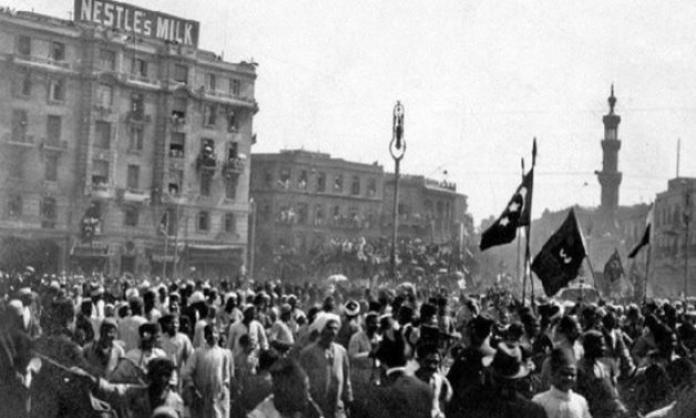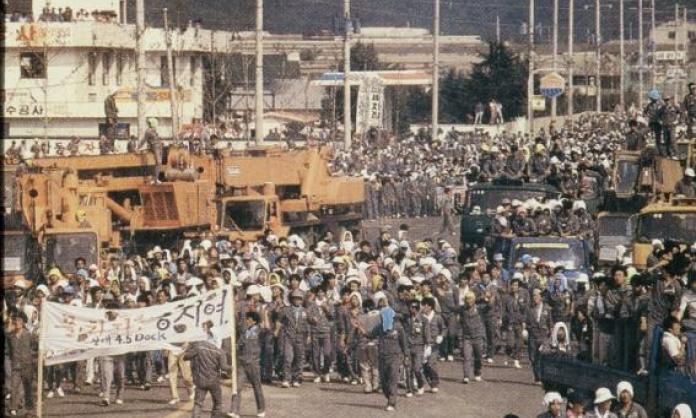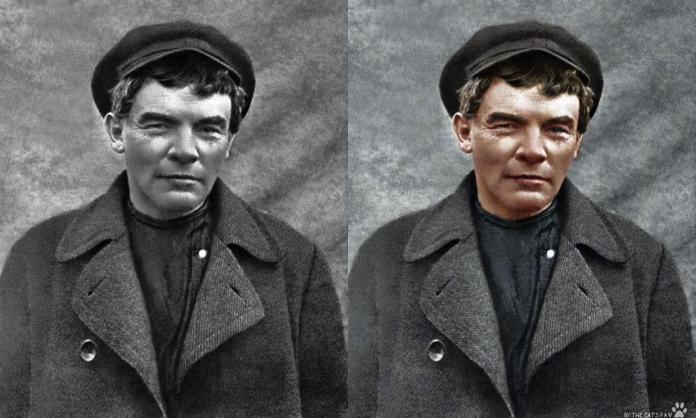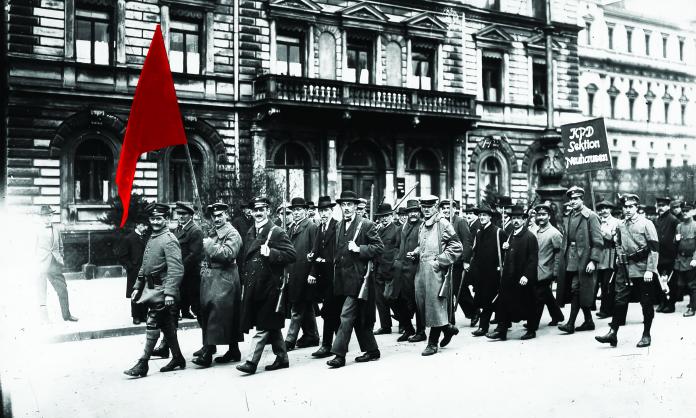The work of a capitalist ideologue is never done. No quantity of academic volumes, measured by the tonne in most university libraries and representing hours of weighty contemplation, has so far proved sufficient to relegate Marxism to the realm of quaint obscurity.
In what must have conservative columnists everywhere tearing their hair out with frustration, Marx is consistently voted the most important philosopher of all time in polls taken by the BBC, the Communist Manifesto retains its place as one of the best-selling and most widely translated books of all time.
There is a reason why Marx continues to capture the imagination of new generations of people, even more than a century after his death.
The inequalities and injustices of the capitalist system Marx attempted to understand and explain endure. The gap between rich and poor has expanded since Marx’s time. The alienated, unfulfilling and exploitative nature of work persists. The concentration of immense wealth and power in the hands of a few has become more pronounced.
The tendency of capitalism to divide workers along spurious national, racial and sexual lines continues. And the capitalist system remains as unstable, unplanned and chaotic as ever, descending into crises, both military and economic, with brutal regularity, condemning millions to unnecessary poverty and deprivation.
Marx did not concern himself with predicting the “downfall” of the capitalist system as is usually so tritely asserted in most mainstream references to his work. Rather, he attempted to understand and describe the mechanics of the capitalist system, and the contradictions within it, which could give rise to social conflict and in turn drive change.
This involved breaking with the previously widely accepted proposition that ideas and human reason drive society forward. Marx argued that ideas and political institutions instead reflect the economic structure of society. As he expressed it: “[I]t is not the consciousness of human beings that determines their existence, but their social existence that determines their consciousness”.
Changes or ruptures in the economic structure of society therefore inevitably present challenges to the prevailing ideology and political institutions of any society.
Marx went on to argue that the economic mode of production not only informs the ideology and political institutions, but also conditions relationships between individuals in that society. The fact that groups of people who share a common relationship to the productive process therefore also have shared economic and social interests is what Marx referred to when he wrote about class.
In the capitalist system, there are two major classes: the capitalist class and the working class.
The capitalist class consists of those who own and control the wealth of society, that is, the factories, mines, transport networks, communication systems and office blocks without which human beings would be unable to produce what we need to survive.
Bosses, and their representatives on boards and in management, treat these resources not as a means of fulfilling human needs, but as sources of profit. Television network executives do not particularly care if the programs they produce are entertaining, stimulating or shed new light on the human condition so long as they can be sold at a profit and extract a suitably high premium from advertisers. Every branch of industry under capitalism, from food production to energy generation, is run according to this profit-driven logic.
And because bosses are in constant competition with each other to generate the largest possible profit, they constantly seek ways to lower the costs of producing their goods and services. The most effective way they do this is through cutting workers’ wages and increasing the rate and intensity of work.
The working class has a very different relationship to the productive process. Workers don’t own any significant proportion of society’s wealth-producing assets, so to survive they rely on selling their labour to those who do. In exchange for surrendering a certain number of the hours of their life to a boss, workers receive a wage with which they can buy what they need to survive and face another working day. Workers thus have a collective interest in working fewer hours, in a more leisurely manner, for better pay.
This conflict between the interests of workers and those of bosses was what Marx identified as the driving force for social conflict and ultimately revolution in capitalism.
There are of course layers between these two major classes – such as low-level management, small business owners and the self-employed – which contain elements of both. This middle class layer is highly visible, dominating popular depictions of life on television and in advertising, but is in reality a relatively small minority of the population. And in any major social conflict the middle class does not usually play an independent role, but is forced to take sides between the working class and capitalist class.
Marx did not labour under the illusion that the conflict between workers and bosses would put capitalism into a state of perpetual conflict and revolutionary upheaval as his detractors often assume.
Instead, Marx argued that class struggle is “sometimes hidden, sometimes open”, but always present. It can be obscured at times through a number of means, the most powerful being the ideological edifice surrounding the institutions and practices of capitalism that justify the status quo, and which present it as beyond challenge much of the time.
The coercive apparatus of the state – the police, prison system and the military – play the most obvious role of physically enforcing the social and economic interests of the rich and powerful against those of the working class and poor. In a more subtle way the education system, mass media and political institutions also play an important role in convincing people to accept the established order, or at the very least to seek improvement to their lot only within the existing structures of capitalism.
The vast inequality that characterises capitalism is somewhat obscured by the idea that the law treats all citizens as equals. A rail commuter fined $150 for having their feet on the seats can take comfort in the thought that a CEO in the same situation (perhaps during a chauffeurs’ strike) would be lumped with a similar penalty. Indeed they are expected to be grateful to live in such an admirably egalitarian society. In this and many other ways, the ideology of capitalism plays a role in concealing and distracting people from the reality of their situation, and in so doing stabilises the system.
For Marx this comes as no surprise. He linked the prevalence of pro-capitalist ideology with the economic dominance of the capitalist class, summed up in the statement “the ideas of any epoch are the ideas of the ruling class”. This important observation helps to explain why workers can appear passive or accepting of the bosses’ social or economic agenda at certain times, despite their underlying opposing interests.
This situation cannot last indefinitely however. As Marx pointed out, the competition at the heart of the capitalist system creates a dynamic that consistently pushes workers to become more conscious of their collective interests and to act on them.
One example is the tendency towards economic crisis Marx identified in capitalism. Because capitalism is an unplanned, profit-driven system, investment goes to where the greatest profits can be made rather than to meet people’s needs.
As a result, bosses tend to rush to invest in the most profitable industry or commodity at any one time, which in turn leads to a spike in production of that commodity, and a consequent drop in its value.
This undercuts profits and leads to a withdrawal of investment, and thus a downward spiral begins, radiating out to myriad related industries. This cycle of boom and bust has characterised capitalism from its earliest days, and becomes progressively more intense as the system ages and capital becomes more concentrated in the hands of fewer and fewer giant interests.
Every time such cyclical recessions hit, workers face unemployment, attacks on their living standards and harsher working conditions as bosses attempt to force them to bear the brunt of the system’s crisis. To maintain the standard of living they are accustomed to, workers must therefore organise to defend their rights, jobs and working conditions.
The other feature of capitalism that raises class consciousness and brings class conflict to the fore is war. It was not so much Marx but later Marxists building on his work who described the tendency of the capitalist system towards military competition and war. Two Russian revolutionaries writing in the early 20th century, Lenin and Bukharin, made the most important contribution.
They argued that as capital becomes more concentrated and centralised through larger firms taking over their smaller rivals (a tendency Marx had previously identified), firms increasingly look to gain control of sources of profits outside their own borders. They do this in partnership with their nation state and the military clout it can muster.
Inevitably through this process states come into conflict with others pursuing similar ends, and hence military competition arises between the major capitalist powers, otherwise known as imperialism. Imperialist war has thus been an enduring feature of capitalism over the last hundred years and more, resulting in the deaths, suffering and deprivation of untold millions.
It is no coincidence then that radicalisations and revolutions tend to occur in response to imperialist wars and economic crises. The brutality and deprivation of the First World War drove workers to overthrow their government and take power in Russia in 1917. During Marx’s time, the Paris Commune of 1871 was formed partly in reaction to the debacle of the Franco-Prussian war. And the Great Depression of the 1930s led to one of the most profound working class radicalisations of the last century.
The dynamic, unstable and crisis-prone nature of the capitalist system ultimately can’t help but generate resistance, even if punctuated by periods of passivity or resignation on the part of the working class.
For Marx, observing and taking part in working class struggle convinced him that an alternative, based on collective and democratic control of the means of production by workers, was both possible and necessary.
As we’ve already discussed, the means by which individuals survive in any society informs their consciousness and ideas. Because workers produce all the wealth collectively, they have to learn to cooperate with each other and overcome barriers in order to function effectively in a workplace. They can only improve their social position by organising and taking collective action, such as forming unions and going on strike. This means there is a tendency towards unity, mutual respect and collective action amongst workers that doesn’t typically characterise other social classes.
It is this quality that led Marx to conclude that the working class could through their own conscious struggles create a society based on collective democratic control of the wealth of society by the majority – for the first time in human history.
Given that workers’ control presents a fundamental challenge to the existing capitalist order, struggles which take this as their aim will be met with the full force of the capitalist state. Which is why Marx argued that every last vestige of the existing ruling apparatus must be done away with in order for workers’ revolution to succeed and socialism to flourish.
Again, this was based on practical experience. Marx’s observations of the Paris Commune, summarised in his classic The Civil War in France, explained how the failure of the Communards to dismantle the existing capitalist state played a large part in their eventual defeat.
Simply reforming a few aspects of the capitalist system was insufficient as far as Marx was concerned. In part, this is because under capitalism the economic sphere of society is a dictatorship, without even the pretence of being open to democratic reform.
There is no possibility of voting out CEOs and General Managers; they hold their positions by virtue of being rich or trusted by the rich, and there is no election that you or I could run in to replace them. Only a revolution – which democratises production through workers taking collective control of their workplaces and expropriating their bosses – can put an end to this despotic power.
But Marx also argued that revolution was essential in order to prepare workers to run things themselves; to break them from the passivity, subservience and oppression beaten into them by the capitalist system. Which is why he stressed that socialist revolution is about the self-emancipation of the working class, not emancipation from on high.
Forming democratic committees to coordinate production in the interests of the majority, devising better means to produce and distribute goods, and finding ways to broaden and strengthen workers’ control are all essential experiences workers need to go through to prepare them for running a socialist society. As Marx put it in The German Ideology:
“[R]evolution is necessary, therefore, not only because the ruling class cannot be overthrown in any other way, but also because the class overthrowing it can only in a revolution succeed in ridding itself of all the muck of ages and become fitted to found society anew.”
Having gone through this process, it is inconceivable that workers would accept a return to despotic, unaccountable authority such as we have become accustomed to under capitalism.
Marx did not argue that workers’ revolution would inevitably occur, or that the victory of socialism over capitalism was predetermined, as he is often portrayed as having done. A further ingredient is needed to push workers towards a greater awareness of their own potential power – conscious political intervention and leadership by committed revolutionaries.
In his own life, Marx was a dedicated activist. His penning of enough volumes of political economy to keep a family of four in doorstops for eternity is well-known. Less known is the contribution he made to forming and building the International Workingmen’s Association, the first significant international revolutionary working class organisation in the world. Marx and his collaborator Engels wrote the constitution of the International, and played a major part in its activities and debates.
The importance of independent working class organisation to the success or otherwise of struggles and workers’ revolution was further elucidated during the many workers’ revolutions that have rocked capitalism since Marx’s death. The Russian revolutionary Lenin made a crucial contribution on this score, both practically by playing a leading role in building the Bolshevik Party, and theoretically through his insights into the nature and purpose of revolutionary organisation.
Lenin argued that because class consciousness is not uniform, because some workers reject most pro-capitalist ideology while others take it up with gusto, a major challenge for revolutionaries, and a precondition for revolution, is to win more workers to a class-conscious and revolutionary outlook.
A revolutionary party aims to unite and organise the most class-conscious workers in order to maximise their influence on other workers, push them in an anti-capitalist direction and lead them in action and ultimately revolution. A revolutionary party is built through struggles and argument, usually in non-revolutionary periods, and its aim is to learn the lessons of past victories and defeats, acting as the “memory of the class”, as Lenin put it, in order to lead more effectively in the future.
Speaking at his funeral, Engels summed up Marx’s life this way:
“Marx was above all a revolutionist. His real mission in life was to contribute, in one way or another, to the overthrow of capitalist society and of the state institutions it brought into being, to contribute to the liberation of the modern working class …
“[C]onsequently, Marx was the best hated and most calumniated man of his time. Governments, both absolutist and republican, deported him from their territories. Bourgeois, whether conservative or ultra-democratic, vied with one another in heaping slanders upon him … And he died beloved, revered and mourned by millions of revolutionary fellow workers.”
Marx’s revolutionary critique of capitalism has to be the starting point for every serious and self-respecting rebel today. But his ideas only have value so long as there are people willing to fight for them, build on them and use them as a weapon in the struggle for a better world.
[This article first appeared in Socialist Alternative magazine.]











